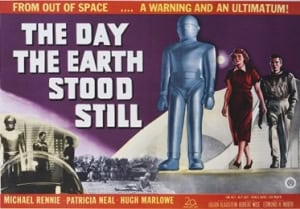They Dropped the Charges
Story by Eleanor Lippman
 It was time for another trip from southern California to Philadelphia to be with family. Time for visiting, time for sightseeing, an opportunity to escape day-to-day activities at home. Son Rob, age 15, looked forward to the trip. Amy, age 17 and living independently on her own, had other ideas.
It was time for another trip from southern California to Philadelphia to be with family. Time for visiting, time for sightseeing, an opportunity to escape day-to-day activities at home. Son Rob, age 15, looked forward to the trip. Amy, age 17 and living independently on her own, had other ideas.
Amy, apparently, decided it was not ‘cool’ to travel with her mother and brother and wanted to fly to the east coast on her own, without excess family baggage. So, I decided it was not a bad idea because if Rob and I arrived earlier, we could do things that Amy was not interested in doing such as visiting the Philadelphia Art Museum and the Rodin Museum on the Parkway, for example.
That is why Rob and I arrived in Philadelphia two days before Amy showed up.
Consider: all of this occurred before TSA and other travel constraints showed up on our front door. People were free to wander about airports and could meet travelers as they walked off of the airplane onto the catwalks and into the terminal.
Over dinner with my mother and brother our first night in Philadelphia, an explanation of our strange travel arrangements came up. My brother, Lenard, came up with the idea. We needed a spectacular way to greet Amy when she arrived. It was not enough to just meet her at the airport and take her to the motel where we were staying. It had to be something big and special, something memorable. Lenard was like that. Funny guy. Jokester. The idea man. Everyone had suggestions ranging from loving to nasty. We had not settled on anything firm when we decided to go to my mother’s house for dessert and coffee after having dinner at the restaurant. And even more suggestions were thrown about as we left.
While we were settled around the kitchen table and my mother bustled about preparing coffee and serving home baked cake, Lenard said he had a good idea. He would be back in a few minutes. I heard him go down into the basement and my mother, Rob, and I sat around waiting for him to return.
Lenard returned carrying a large sheet of poster board on which he had carefully lettered:
“Welcome home Amy! They dropped the charges!”
Rob and I thought it was hilarious, my mother was shocked and declared she would not go to the airport with us if we were to carry that poster. To pile on Amy’s “welcome”, we decided we needed to be wearing crazy clothing while we were carrying the sign. Taking the hint, Lenard disappeared once again and returned carrying three straw boater hats – perfect, we three agreed.
But it was not goofy enough for Lenard and I, brother and sister joined at the hip at doing outrageous things. We needed more, much more to make it worthwhile.
I cannot remember whether it was my mother (really a good sport up to a point) or my brother who suggested we stop at a gift shop in downtown Philadelphia that was well know for its zany merchandize. So, it was agreed: on the day Amy was due to arrive we would have breakfast downtown and stop at the gift shop before heading to the airport. We needed to beef up our appearances.
After breakfast that fateful morning, we starting walking to the gift shop and passed a store selling discount, used, damaged, out of date merchandize. Curious, we explored and came across a cardboard box containing hundreds of very old fashioned narrow knit men’s ties: three for one dollar. Perfect! No one would be caught dead wearing something so silly. We walked out of the store, each wearing one of the ties. Things were getting better.
We arrived at the gift store and explained our quest to the owner of the shop and she quickly got it. The goofier the better. Oversized sun glasses. Fake animal noses. The fake eyeglasses with the attached fake nose and mustache. Things to tuck into the hat band that swayed and wiggled as we walked. It was wonderful. The more we added, the more fun we had.
Another idea popped into my head. At home in California, Rob and I had a fake hand. Actually, it was a very realistic plastic hand attached to what looked like part of a long-sleeved shirt. If Rob knew I was expecting friends, I could just about predict he would arrange the hand as if it was coming out between two sofa cushions or reaching out from beneath an upholstered chair. On the other hand, if I was asked to drive Rob and friends somewhere, I would tuck the hand somewhere in the car to surprise our passengers. Soon the game became too obvious and we were not using the “hand” any more. But what if the gift shop sold fake hands? Wouldn’t that be funny to have with us?
Actually, the proprietor of the shop had something better. It was a scarier version of our fake hand and it was very expensive. Our fake hand in Riverside, California, was simply a hand and a sleeve. Her hand was a hand and a sleeve and a bloody and very realistic severed arm stump. She even offered to lend it to us if we promised to return it after we picked Amy up at the airport. But we all decided that was a thing too far and too gross for our little welcome skit. (Thank goodness!)
Finally, we were ready. Our loving and warm welcoming well-dressed committee of three prepared to meet Amy at the airport.
Remember, this occurred long before 9/11 and TSA screening at airports. We arrived and parked and Lenard carried the big welcoming sign. Rob and I were dressed like clowns as was my brother. We were so happy and talking as we approached the arriving passenger terminal. People in the terminal pointed and laughed as we approached. What a fun day. Amy will love it.
The flight from Los Angles finally landed and passengers began appearing at the arrival gate. Just about everyone looked at us and laughed as they walked away. The passenger crowd started to thin out and we did not see Amy. Finally, no more people. We worried that something bad had happened when down at the very far end of the catwalk, we saw a group of the pilots, the stewardesses, and Amy approaching chatting away as if they knew each other forever. Not one of them was looking toward the terminal. The group grew closer and closer, never looking at us.
When they reached to door leading to the airport terminal, Amy looked up. 
She saw us and with a panicked look, turned and ran down the catwalk back to the airplane screaming, “Take me back to California!”
Not the response we expected.
The pilots and the stewardesses went to Amy and escorted her toward us, all the while enjoying our little joke. They left Amy standing in front of us and if looks could kill, Lenard, Rob, and I would be very dead.
Conclusion?
With great difficulty, Amy agreed to follow us to the car once we got her suitcase from baggage claim, angrily muttering the whole time.
What to do? Since it was approaching lunch time and Amy was hungry, we went to the very famous Pat’s Steak House in South Philadelphia and sat on the picnic benches on the sidewalk eating Philadelphia Cheese Steak sandwiches while neighbors wandered past, everyone apparently knowing everyone else. (South Philly, the land of brick row houses, was a very family-oriented area. People lived in houses next to or across the street from grandparents, aunts, uncles and other relatives. You did not move away, you stayed in the neighborhood.)
I think Amy liked that. What is not to like? Slowly as we ate our lunch, she softened. The dagger eyes disappeared. Our Amy was back. But not completely.
To this very day, whenever I fly to visit Amy, she reminds me to expect a surprise when she picks me up at the airport.









